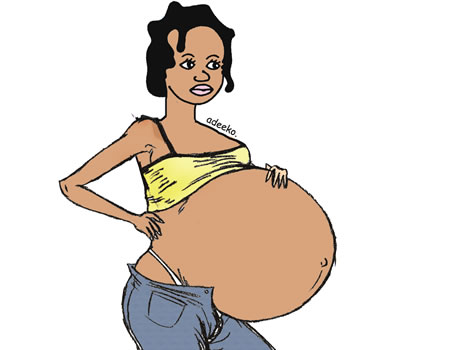Teenage Pregnancy in Nigeria has been on an alarming increase in recent times. It has become a menace that plagues the lives of young girls in this century. Teenage pregnancy is said to be unintended pregnancy among females between the ages of 15–19 years: it can occur in ages as low years. As , statistics by the National Population Commission showed that about 23 per cent of adolescent women years were already mothers or pregnant with their first children. Researches have also shown that the prevalence of this menace is highest in the North West Zone (36 per cent) and lowest in the South East and South West Zones (8 per cent each) of the country. About 80 per cent of these pregnant teenagers are totally unprepared for this situation in which they ignorantly found themselves. Teenage pregnancy carries a social stigma in many communities and cultures.
Quite a number of studies have attributed the increase in teenage pregnancy in Nigeria to a number of factors, such as: absence of parental care and guidance, peer pressure, ignorance on the part of the teenager on sex related issues, financial hardship, low level of education, cultural and religious beliefs, sexual assault and many more. There is a common misconception that most adolescent pregnancies happen by chance however, this is not entirely true in all cases. For instance, some adolescents who are aware of the implications of being in sexual relationships, still go ahead to explore sex and are pretty much unprepared to bear the consequences. In other situations, a few parents or guardians give their teenagers out in marriage on the grounds that they do not have the fortitude to provide food and educate them.
The implications of teenage pregnancy are quite grave for the mother and the child. The effects are heavily felt on the economy and society at large. Although this might not be immediate but usually has a long lasting effect if not well managed.
At the forefront of these consequences is unsafe abortion. Abortion is illegal in Nigeria, it is permitted only in exceptional cases where it is performed to save a woman’s life. Unsafe abortion is one of the major reasons the maternal mortality rate (1500 women ,000 births) of the country is on the high side. According to the WHO, 14 per cent of all unsafe abortions in developing country are among women





